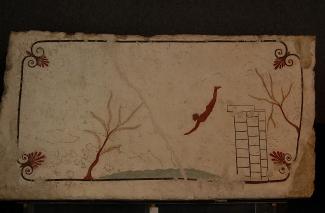
Graduate workshops are an essential component both of graduate education in the Department of Classics and of the Department’s intellectual culture. The workshops bring together faculty and graduate students in cross-disciplinary conversation. They provide graduate students in the Department with a forum for presenting their own research and writing and for engaging with the work in progress of their fellow students and that of local and invited faculty.
Each workshop meeting involves the presentation of a paper, which may be circulated in advance or given during the meeting, a discussion of the paper, and a reception. Presentations are routinely given by graduate students, faculty members at the University of Chicago, and invited external speakers. Workshops are organized by one or two workshop coordinators, drawn from the graduate student community, and at least two faculty sponsors.
In the Department of Classics, graduate students are encouraged to select one “home” workshop that they will regularly attend, but all workshops are open to all members of the University community and the wider Chicago area.
Faculty of the Department of Classics collaborate to sponsor three regular workshops, which meet at least biweekly:
These three workshops cover the areas in which most of our graduate students work. Each workshop hosts presentations on both Greek and Roman material, as well as on other periods and spaces related to the study of classical antiquity and its reception.
Graduate students and faculty members in the Department of Classics also participate in workshops hosted elsewhere in the University, including but not limited to:
Each workshop website provides its upcoming schedule and contact information. For further information, please contact the respective workshop coordinator.
A full list of the University’s graduate workshops is available from the Council on Advanced Studies.
